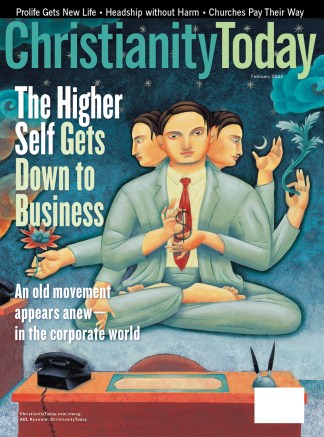Why do evangelicals want to define the boundaries of their movement?
There has historically always been nervousness that theological drift is inevitable. On the other hand, there is the danger that you control it so tightly that you create as much chaos as you do structure.
Your book criticizes the way thecontroversy over Today’s New International Version played out. How should it have happened differently?
It should have happened in ETS before it went public. The advantage of a society like ETS is that the major teachers and translators are all gathered in one place.
At the end of our TNIV panel at ETS this year, I said that this is precisely why the ETS exists, so that we can have a discussion on the merits of the case in public in the presence of Christians leaders so that they can hear both sides at the same time. Unfortunately, the TNIV discussion became a politicized issue before we really had the full discussion of the merits.
The key problem in all these controversies is being sure that the evangelical public gets both sides of the story directly from representatives as opposed to hearing it filtered through critics.
You write: “Maintaining balance on a tightrope always means keeping one’s arms, left and right, outstretched and waving to adjust.” How is this different from just finding the middle of the road?
There are concerns on both the right and the left that may expose blind spots that the other side has. Broad-based exchange gives an opportunity to be sure that we don’t get broad sided because of a blind spot. In the process, it helps keep us honest and accountable. Public-square societies do a good job of keeping us honest, provided we walk in with a real desire to listen and engage.
How does the increasingly global character of evangelicalism affect our thinking about evangelical boundaries and mission?
That increasing global character may expose where our disputes are cultural and provincial and perhaps not substantive. Once we sense that a particular issue concerns Christians in other parts of the world, we may get some guidance on when a dispute is really important.
How do we get that international participation?
Seek, pursue, and strengthen these ties. There needs to be an increased effort in public-square institutions. The Lausanne Committee for World Evangelization may be one of these. This year the ETS made a commitment that someone from the two-thirds world should be a plenary speaker or have a major address every year at our conference so that we hear from someone outside the dominant cultural context of the society.
You call your book Purpose-Directed Theology. What fundamental purposes does every evangelical organization need to keep in mind?
The major one is to speak in a way that our culture has the chance to hear the gospel delivered with authenticity. This means recognition of where the Christian gospel challenges the culture, but at the same time recognition of where the Christian gospel summons the culture to enter into a relationship with God. There are numerous levels at which we need to present the case that biblically based Christianity has something substantive to offer to life.
After Peter Jennings’s television special on Jesus, you worked on a program that would balance the viewpoints in the Jennings special. Was that hard to fund?
There are some really good projects in the works, but they take funding that the projects themselves are not going to be able to generate. It’s an academic effort, not a business plan. There’s an awful lot of money being generated in Christian media and in Christian entertainment. But the only way [major media efforts for the general public] are going to happen is if some people with vision will say, what I’m doing over here is generating a lot of income for the church but some of that needs to go so that these other efforts can represent us in the culture.
Copyright © 2003 Christianity Today. Click for reprint information.
Related Elsewhere
Purpose-Driven Theology: Getting Our Priorities Right in Evangelical Controversies, by Darrell L. Bock, is this month’s selection for the Christianity Today Editor’s Bookshelf. Elsewhere on our site, you can:
- Buy the book online
- Read our extended review by Christianity Today Editor David Neff










